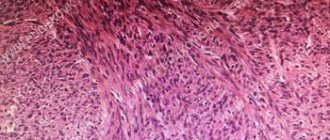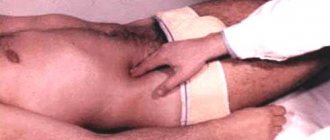Why black?
Having understood that melena is a special stool in medicine, we should say a few words about why it can get this color. So, stool usually acquires this color in the case of stomach bleeding or after a person swallows blood (for example, with nosebleeds). The stool becomes black due to iron sulfide, which occurs after the interaction of hydrogen sulfide and hemoglobin.
When else can melena appear? The reasons for this may include taking certain medications. For example, it could be activated carbon, Bismuth, or iron supplements. In this case, the feces become black in color, but do not have a varnish shine.
general characteristics
If melena develops, the patient notices a sharp change in the consistency and color of the stool - they become more liquid, “sticky”, and turn black (tarry stool).
It is necessary to distinguish between melena and physiological changes in the color of stool caused by taking medications - stool after the use of iron and bismuth preparations is shaped and hard. Bleeding is accompanied by abdominal pain of varying intensity and other dyspeptic disorders, the severity of which depends on the level and extent of damage to the digestive system. In some cases, with the appearance of blood in the feces, the pain syndrome subsides. Simultaneously with the onset of melena, vomiting “coffee grounds” develops, general health is disrupted: the skin and mucous membranes become pale, dizziness, weakness, and fainting are noted. With massive blood loss, collapse is possible, which is characterized by a frequent weak pulse, a sharp drop in blood pressure, and loss of consciousness. Bleeding from the gastrointestinal tract is a symptom of serious pathological conditions and requires emergency qualified medical care.
Reason 2. Internal
Thus, various diseases of internal organs can lead to this problem. This may be gastric bleeding, which often occurs due to stomach cancer, acute erosion, peptic ulcers, Mallory-Weiss syndrome, and less commonly, vascular anomalies. Esophageal bleeding can also be a cause. In such cases, they talk about diseases such as esophageal cancer, reflux esophagitis, and esophageal varicose veins. In addition, there are also bleedings from the duodenum and small intestine. These can be diseases such as peptic ulcers, fistulas, hemophilia.
Treatment
First aid when melena is detected involves complete rest of the patient, cold on the stomach, and, if possible, intramuscular injection of 1 ml of a 1% solution of Vikasol.
Be sure to read:
How to test stool for pathology at home?
The next step will be to assess the patient’s general condition, collect complaints and differentiate from false melena. If suspicions of internal bleeding are confirmed, you should immediately call an ambulance. Hospitalization to a hospital if melena (black stool) appears is mandatory!
You should not delay the examination, since even the slightest bleeding from erosion can develop into massive blood loss in a matter of minutes and cause hemorrhagic shock, which can lead to death.
The hospital conducts an urgent examination to find the cause of melena (fibrogastroscopy, colonoscopy, plain radiography of the gastrointestinal tract, blood test, coagulogram, blood pressure and pulse).
In severe condition and severe blood loss, the patient is transferred to the intensive care unit, where intensive therapy is carried out aimed at restoring the volume of circulating blood and preventing hemorrhagic shock. When melena appears, newborns are given parenteral medications to stop bleeding (calcium chloride, Vicasol, adrenaline), then treatment is aimed at the underlying disease.
Patient examination
The main method for determining a problem such as melena is to examine the patient's stool. If these are not available, but the patient claims that the stool is tarry, a rectal examination can be performed. In this case, feces will be collected from the walls of the rectum and further examined. In addition, if a person has melena, symptoms that may also occur are:
- Pale skin.
- Fainting.
- Decreased hemoglobin levels in the blood.
- Collapse, i.e. sudden cardiovascular failure.
- Special color of mucous membranes.
- Decreased heart rate.
All these symptoms can occur with a problem such as melena, because the main cause of its occurrence is all kinds of internal bleeding, which causes similar symptoms.
Methods for diagnosing the disease
The doctor does a physical examination based on your medical history or medical history. The patient's abdomen is scanned. A stethoscope is used to examine the sounds of the stomach and intestines. This procedure involves palpating the rectum as part of a digital rectal examination.
In addition, disease detection includes laboratory testing of blood and stool samples. Medical and technical devices, such as scintigraphy and X-ray devices, allow you to visually examine the digestive tract from the inside.
Preliminary conclusions are drawn already when describing the appearance of stool. Blood is not a disease in itself. It simply indicates a pre-existing condition.
Experience has shown that this symptom can lead to exacerbation of a pre-existing condition and permanent blood loss if left untreated. Anemia can occur because the body cannot compensate for the constant decrease in blood volume.
Although blood in the stool is a symptom that may go away even without treatment, the causes of this phenomenon need to be investigated. In addition, there are clear instructions when a visit to the doctor is mandatory:
for pain in the stomach or lower abdomen;- for painful abnormalities in the intestines;
- vomiting blood;
- nausea;
- noticeable pallor and vomiting combined with rapid weight loss;
- night sweats and deterioration of general condition.
These symptoms indicate a serious illness.
Melena in newborns
This problem can occur not only in adults, but even in newborn babies. In this case, experts distinguish between true and false melena.
- True. It may occur if the baby has blood clotting disorders. In this case, the child’s umbilical wound will also bleed, there may be bloody vomiting, hemorrhages in the eyes and on the skin.
- False. It occurs when the baby swallows the mother’s blood while passing through the birth canal. It may also occur as a result of breastfeeding if the nursing mother has bleeding cracked nipples. In addition, the baby can also swallow his own blood in the event of, for example, nosebleeds or damage to the mucous membrane.
It is also worth saying here that melena should not be confused with meconium, the first feces of a newborn, which also has a dark color and a similar consistency.
Preventive actions
The main direction of prevention is to prevent the occurrence of this symptom and timely treatment of all diseases that can trigger its development.
To prevent tarry stools in newborns, pregnant women are given vitamin K a day before birth. Babies also receive it in the first week of their life if the birth was difficult or in case of prematurity. In addition, it is indicated for children born from elderly mothers and for those children whose mothers suffered from toxicosis throughout pregnancy.
Link to video:
Melena in older children
Tarry stools can also occur in older children. In this case, it is customary to say that the child has some internal bleeding. The most common cause is a bleeding Meckel's diverticulum (this is a congenital formation, a protrusion of the wall of the ileum). If we talk about children, their bleeding is most often massive, which leads to a sudden onset of anemia. However, black tarry stools often occur in children after injuries to the nose during the game. In this case, the child simply swallows his own blood, which leads to this problem.
Causes of melena
Tarry stools are a very alarming symptom!
The color of stool is affected by bile, the food itself and the time it spends in the intestines. The normal color of stool is brown, in some cases yellow (if you consume a large amount of dairy products).
If blood from the upper gastrointestinal tract enters the stool, it first mixes with bile and sulfuric acid from the gastric juice, which leads to the formation of black stool. Tarry stool is always a reason to call an ambulance!
The presence of streaks of scarlet blood in it does not indicate the location of the bleeding. Only a doctor can reliably determine the focus. Although the cause is usually bleeding, there is the concept of false melena caused by physiological causes. The stool turns black due to foods or medications consumed.
You can distinguish it by its consistency, that is, the stool turns black, but the consistency is normal. Common causes of false melena:
- Some berries stain the stool. These include black currants and blueberries.
- Beetroot can color feces and urine. When consuming large amounts of beets, the stool becomes black and may be thinner due to the laxative effect of the vegetable. The urine turns red and may appear to be tinged with blood. All these symptoms quickly disappear after stopping consumption of beets.
- Activated carbon also causes stool to become colored. The more tablets taken, the darker the stool will be. The consistency should not change.
- Preparations containing iron turn stool black. This is usually stated in the instructions.
The cause of tarry stools may be bleeding that is not gastric or intestinal, but of a different nature, for example, when swallowing a large amount of blood during a nosebleed or pulmonary hemorrhage. Even if some of these products and drugs have been consumed and there are reasons to consider melena to be false, you should not make a diagnosis yourself; it is better to call an ambulance and undergo diagnostics.
An ambulance will necessarily hospitalize a patient with complaints of melena, even if the paramedic and doctor did not see “confirmation” of the patient’s words. Any bleeding can be life-threatening.
Getting rid of the problem
If a person has melena, treatment should only be carried out under the supervision of specialists. Self-medication in this case can be very dangerous not only for the health, but also for the life of the patient (after all, such stool is mainly caused by various internal bleeding). If such a problem is discovered, you should immediately call an ambulance. After this, doctors will most likely send the patient to a surgical hospital. Certain emergency endoscopic examinations will already be carried out there:
- Colonoscopy.
- Esophagogastroduodenoscopy.
As a result of the research, the source of the bleeding will be determined. Then all efforts will be devoted to stopping this bleeding. However, before the ambulance arrives, a person must remember that eating is strictly prohibited at this time. If you are very thirsty, you can only take small sips of cold water. It is also good to put an ice pack on your stomach.
Melena-shaped stool what to do
If tar-like discharge appears when visiting the toilet, you should assume that this is a symptom of the probable development of bleeding. Therefore, it is necessary to call an ambulance as soon as possible. Before the doctors arrive, it is better to place the patient in bed and apply cold to the abdominal area. Under no circumstances should you use any medications before consulting your doctor. Both water (drinking) and any food are prohibited.
If you suspect bleeding in any part of the gastrointestinal tract, you should not warm the stomach in any way, try to give an enema or rinse the stomach. The only possible method of first aid (if severe bleeding is suspected) is the administration of hemostatic drugs, for example, Vikasol.
Patients with suspected bleeding from the gastrointestinal tract are subject to hospitalization in the surgical department. If the bleeding is not severe, they will first be given medications to stop the bleeding (hemostatic agents). But if such medications do not provide a positive effect, surgical intervention – open or laparoscopic – cannot be avoided.
Life expectancy with melena
The total lifespan is several days. Especially with intense blood loss. Life expectancy is affected by:
- treatment;
- type of melena;
- course of the disease.
Severe course shortens life expectancy. A mild course increases life expectancy. Life expectancy increases:
- during blood transfusion;
- with intravenous infusion;
- medicinal treatment.
Blood transfusion helps to establish hematopoiesis. Intravenous infusions:
- reduce intoxication;
- improve the child's condition.
Prevention
Prevention of melena involves researching information about the development of the disease. Namely, this concerns the prevention of pathological conditions. These conditions include pregnancy pathology. Older women are at risk.
To prevent the development of melena in newborns, it is better to plan pregnancy during reproductive age. This reduces the risk of premature babies and the risk of difficult labor. Difficult childbirth only contributes to the disease.
It is also important for a pregnant woman to take vitamins. As for vitamins, they are also administered to a newborn baby to prevent melena. Prevention is also aimed at treating toxicosis.
It is known that toxicosis is also treatable. To do this, a certain method of therapeutic therapy is used. It includes:
- diet;
- use of prophylactic drugs;
- use of vitamins;
- use of vitamin juices.
If you are planning a pregnancy, it is better to exclude the presence of diseases. These diseases may be associated with an infectious process. It is appropriate to maintain a healthy lifestyle. And also prevent fetal hypoxia.
Prevention of oxygen starvation of the fetus includes walks in the fresh air. To prevent the disease, it is necessary to exclude uncontrolled use of antibiotics. It can also affect the development of the disease.
go to top
Forecast
The prognosis for melena is usually poor. This is due to acute blood loss. A particularly unfavorable prognosis is observed in newly born children.
An unfavorable prognosis is also observed in the elderly population. The prognosis is influenced by the course of the disease. Mild melena has a good prognosis.
However, most often melena is severe. Therefore, the prognosis rarely becomes favorable. Especially if there are additional diseases.
go to top








